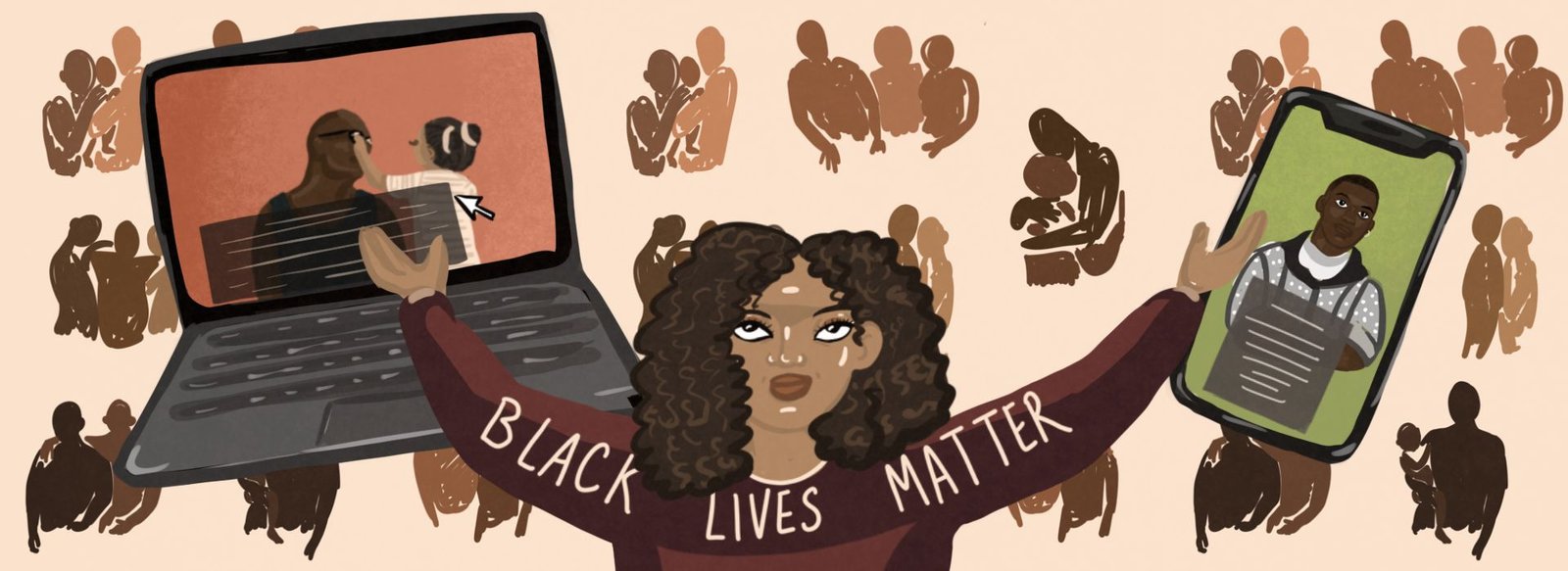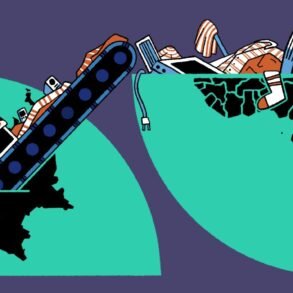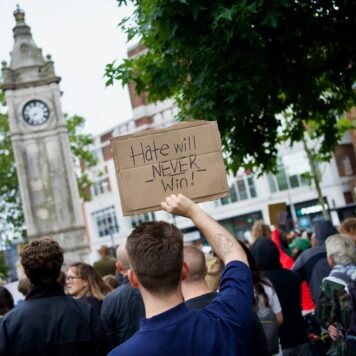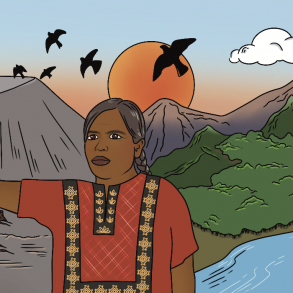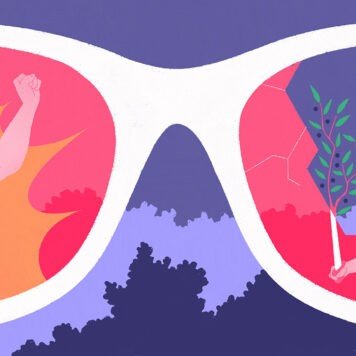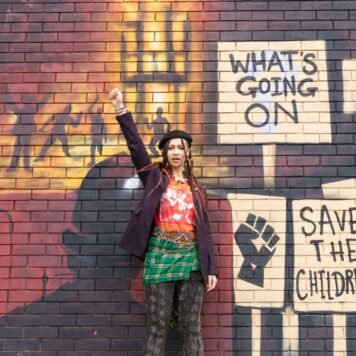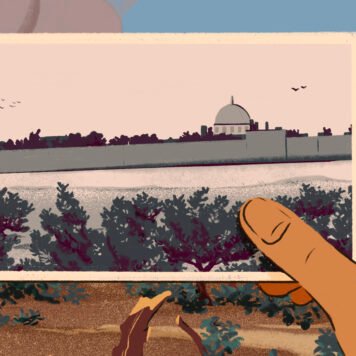As we approach the anniversary of George Floyd’s murder, it has become apparent that discussions surrounding the systemic and structural issues of police brutality in the UK are still essential. Despite a summer of protests, there has been a lack of action to tackle the insidious problems of police brutality in the UK. Moreover, when these cases are recorded, they are often turned into problematic headlines, not affording the situation or the victim’s family enough nuance or respect. This week, I sat down with Kaya Isaac to discuss her new online platform kayaisaac.co.uk which aims to remedy just this issue.
Kaya is a 25 year old educator and mentor from Birmingham, who began advocacy work around police brutality in the UK whilst at University. Motivated by her father’s declining health following a racial attack by police in the 90s, Kaya fights for social and racial justice in his honour. She now uses her Instagram to share resources, and offline supports students of colour in higher education as a mentor. Through her new website, she hopes to occupy a small corner of the internet where people can explore the people behind the headlines in police brutality cases so often sensationalised in the media – the nuances of their stories, their aspirations, and achievements.
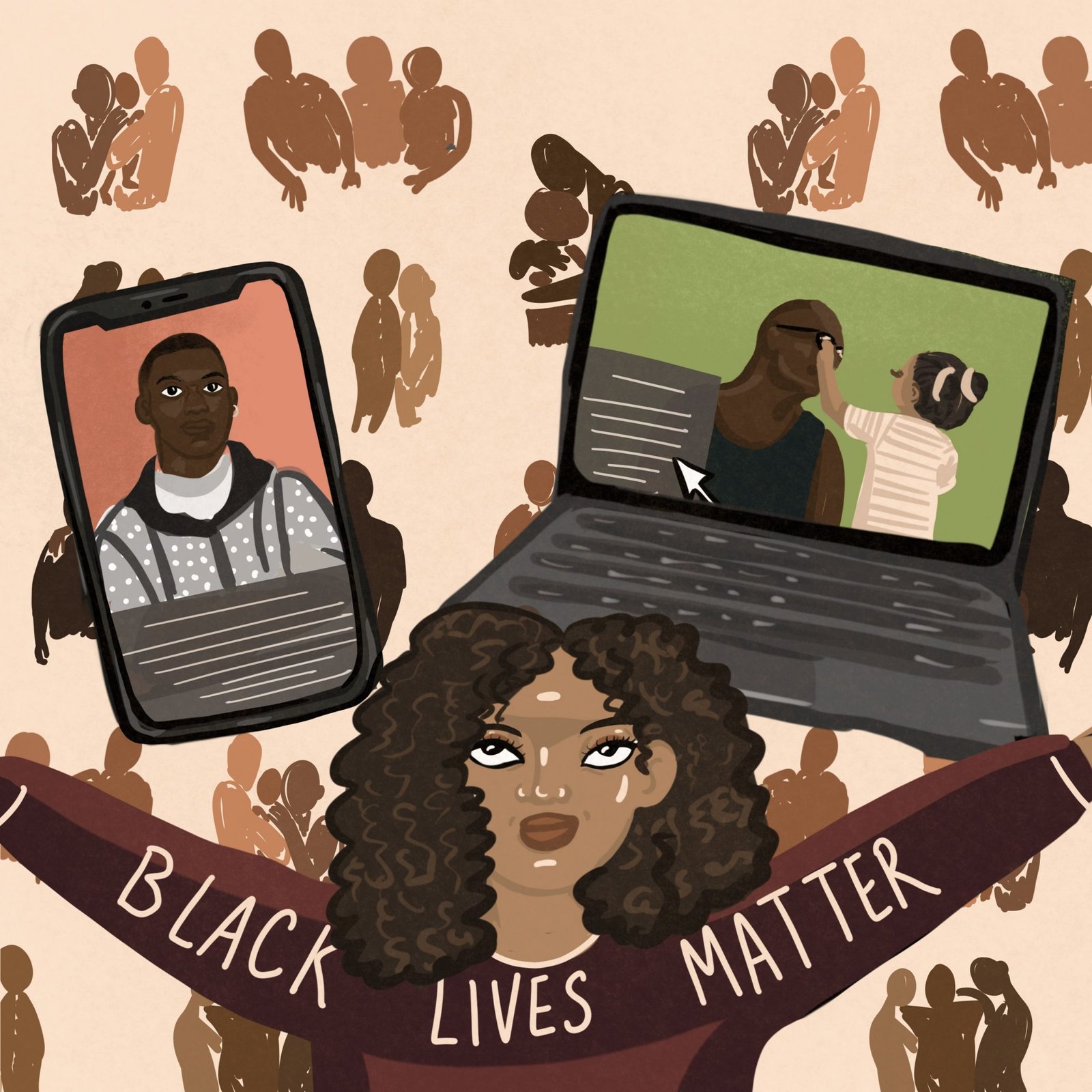
We opened our discussion with Kaya’s motivations for creating the platform, which she expressed were largely rooted in frustration following the murder of George Floyd. Kaya, along with so many people of colour, was being called upon to educate those only now waking up to the realities of racism in the UK and US. This was coupled with the rise of performative activism, the black square silencing protest safety information, and the proliferation of infographics. ‘‘I would see the very things I was trying to amplify, be echoed by a white woman in a digestible, stylish way, and see their accounts gain over 30k followers overnight. I could go on, but it was all of these things which spurred me to create my own information sharing platform as so much of what was circulating was neither considerate or reflective’’. It also caused Kaya to reflect on her own social media action, specifically the sharing of triggering content. ‘‘I thought that sharing graphic content would shock people into acting. It didn’t work then and still doesn’t now, it just traumatises the very people I want to support. Being biracial, I have always recognised the privilege I have over dark skinned Black women, and it was this which made me step back and consider how I can use my voice in a way that is true to myself”. Now Kaya is using her platform to hold up more complete narratives. “Reflecting on my Dad’s racial attack and his disability, he was never able to truly tell his story. I became that for him, and I thought about how many people in the UK also feel powerless or want more of a narrative than just death and pain. That’s when the website began to come together’’.
With the website so rooted in Kaya’s own personal experiences, we discussed the reality for victims of police brutality and their families beyond the confronting headlines circulating in the media. In a time where information sharing is at the click of a button, Kaya urges people to be mindful in their approach. ‘‘I think for people that haven’t lived through the experiences after police brutality, awareness should not come before considering the family aspect. For example, when I wrote about Sandra Bland, upon research I found out about how Sandra’s sister was upset by all the conspiracy theories surrounding her death and wanted people to stop speculating about the mug shot photo. It’s great that people want to spread awareness and it can be effective, but reading about these cases in detail before posting is so necessary”. She continues, ‘‘I also think more scrutiny within the online community is needed concerning fundraisers to ensure the family is actually benefiting’’.
With the website having only gone live in February, I ask Kaya her plans going forward. Her wish to support families navigating the effects of police brutality, and representing their stories, was a clear direction for the platform. ‘‘I want to develop more credibility in storytelling, so I can approach families in the UK that have experienced police brutality. Yes I have a lived experience of this, but it can be very raw and traumatic for a family to share their story. Even I sometimes still get emotional when sharing my father’s story, and so I want to take my time with developing this platform.’’ As a result of the institutional racism in the British press and the subsequent distrust felt by marginalised communities, Kaya explains that families often resort to sharing their stories ‘‘only out of necessity’’ and plans to develop her journalism as a ‘‘positive, more thoughtful space’’ where these stories will be handled with sincerity. Through the website, and her anti-racism work offline, Kaya also hopes to engage with grassroots organisations in Birmingham and nationwide to advance her anti-racism work.
Whilst the website represents her newest project, Kaya’s anti-racism and advocacy work is not limited to this space. Kaya uses her research and mentoring role within higher education to drive change at the intersection of social justice and education. Reflecting on the life-changing influence of mentors in her own life, Kaya emphasises the value of representation – for all marginalised voices – within this sector. She does so whilst highlighting the ‘‘painfully low’’ percentages of Black teachers and academics. ‘‘All it can take sometimes is one person, someone who looks like you, to tell you that you can make it. The world needs more mentoring, we can all get to where we want in life, we don’t have to be against each other.’’ Kaya plans to penetrate this sector, with aspirations of becoming a University lecturer and championing mentoring in academia.
Navigating these institutions whilst doing her anti-racism work has not come without its personal challenges, with anti-racism strategies proving grossly inadequate in recognising the nuances of racism. ‘‘My last role was at a college in Birmingham, and the micro aggressions were too much to deal with. I had a particularly traumatic comment aimed at me pertaining to ‘All Lives Matter’. When reported to HR, Kaya’s experience was met with ignorance and a refusal to recognise this form of discrimination. ‘‘People of colour know that HR is never a resource for support, and even unions can be problematic. Doing anti-racism work has repeatedly been perceived by others as too ‘political’. I have always had this, and people don’t realise how alienating this work can be’’. In response, Kaya hopes to develop anti-racism and microaggression policies that actually work and reflect the lived experiences of students of colour. ‘‘The UK needs to address racism with their chest, no more Equality and Diversity brackets. We need real anti-racism policies and legislation.’’
Despite these glaring injustices, our conversation was not void of hope, as Kaya shared her faith in today’s youth in affecting change. ‘‘It seems that a lot of us have become so brave and emboldened in fighting for change, and I love it! It gives me hope in dark times, that in the future there will be more of us policy and change makers. I can’t wait to see that come to fruition.’’
